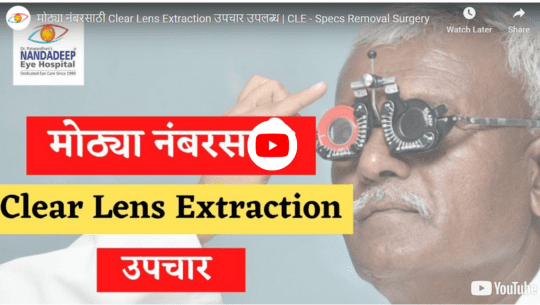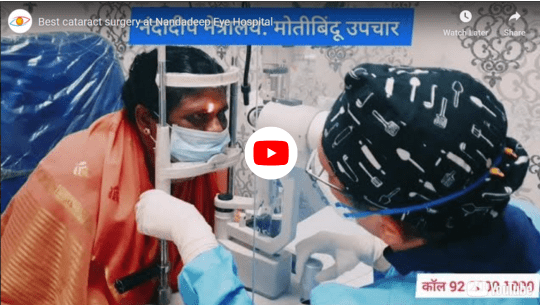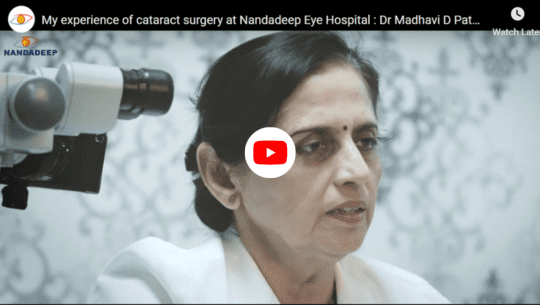Speciality Contact Lenses
At Nandadeep Eye Hospital, we have a special clinic for contact lenses. Our team of experts will help you find the best lens for your condition. We have the latest equipment and a wide range of lenses with different designs. We have successfully solved many challenging cases and changed the lives of our patients.
What is the cornea and why is it important?
The cornea is the clear part of your eye that covers the front surface. It bends the light that enters your eye and helps you focus on what you see. The cornea is very sensitive and can be damaged by injuries, infections, diseases, or surgeries. This can affect your vision and cause pain or discomfort.
What are the indications for contact lenses?
Speciality contact lenses are designed to fit your eye shape and correct your vision problems. They can help you if you have any of these conditions:
-
Ocular surface disorders: These are problems with the outer layer of your eye, such as dryness, inflammation, or scarring.
-
Colour vision deficiency: This is when you have trouble seeing certain colours or telling them apart.
-
Keratoconus: This is when your cornea becomes thin and bulges out like a cone.
-
Keratoglobus: This is when your cornea becomes thin and bulges out like a globe.
-
Pellucid marginal degeneration: This is when your cornea becomes thin and bulges out at the lower edge.
-
Corneal opacity: This is when your cornea becomes cloudy or scarred, blocking your vision.
-
High astigmatism: This is when your cornea has an irregular shape that causes blurred vision.
-
Post LASIK ectasia: This is when your cornea becomes weak and unstable after laser eye surgery.
-
Intolerance to ordinary contact lenses: This is when you cannot wear regular contact lenses because they cause irritation, infection, or allergy.
Speciality contact lenses can also help you if you are a sports person, or if you have had a corneal tear repair, pannus, irregular astigmatism, post-traumatic, penetrating keratoplasty, post-refractive surgery complication, or post herpetic infection.
What are the types of speciality contact lenses?
At Nandadeep Contact Lens Clinic, we have a variety of speciality contact lenses to suit your needs. Here are some of the types we offer :
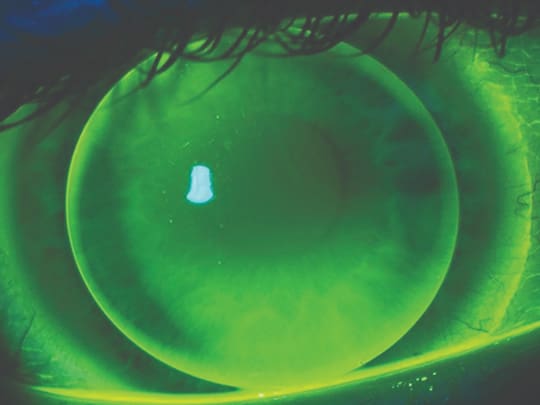
Rigid gas permeable lenses
These are hard lenses that allow oxygen to pass through. They are very common and affordable. They can correct most vision problems, including high astigmatism and keratoconus. We have different brands and models of RGP lenses with high oxygen permeability.

ROSE K lenses
These are specially designed lenses for patients with irregular corneas, such as keratoconus, keratoglobus, or post-LASIK ectasia. They are made by Paul Rose, a world-renowned expert in contact lenses. They have a unique shape that fits comfortably and securely on your eye.
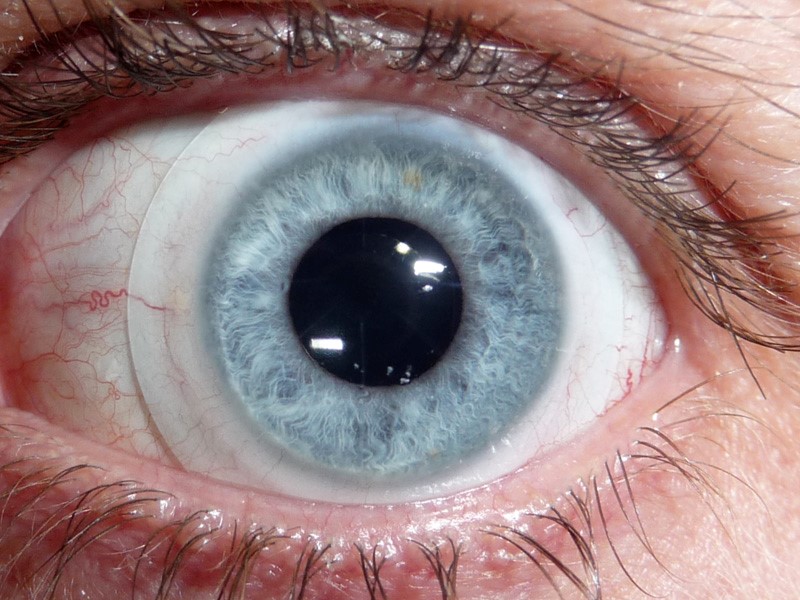
Scleral contact lenses
These are large lenses that cover the entire cornea and rest on the white part of your eye, called the sclera. They do not touch the cornea at all, which makes them very comfortable and stable. They can help you if you have severe corneal disorders, such as ocular surface diseases, corneal opacities, or post-traumatic.
There are different sizes of scleral lenses, depending on how much of the sclera they cover:
-
Corneo-scleral lenses and semi-scleral lenses:
These are medium-sized lenses that rest near the edge of the cornea and the sclera.
-
Mini-scleral lenses:
These are larger lenses that is placed over the whole cornea and rest on the front part of the sclera.
-
Full scleral lenses:
These are the largest lenses that provide the most space between the lens and the cornea.
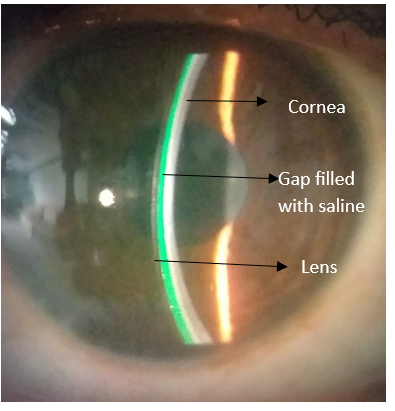

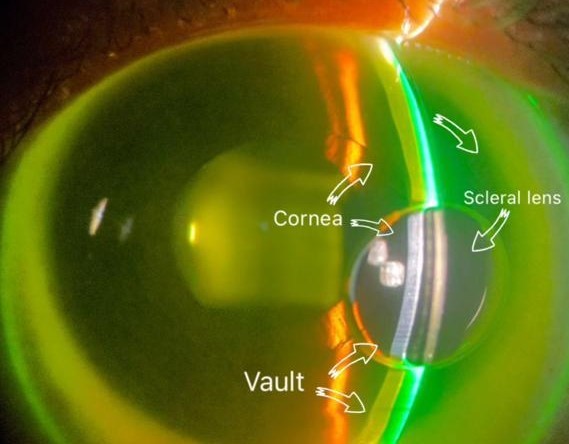
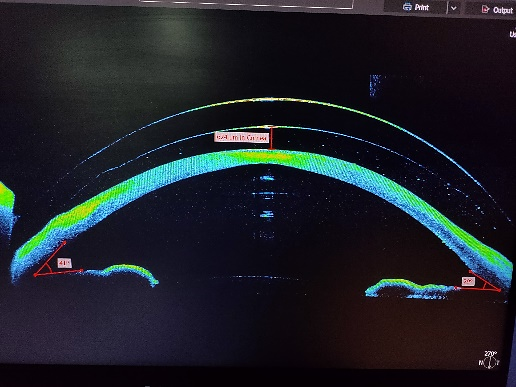
Some advantages of using scleral lenses are:
-
Larger Size :
Scleral lenses have a larger diameter (19-24mm) compared to standard contact lenses (14-16mm). This larger size allows them to vault over the sensitive cornea and rest on the white part of the eye (sclera). As a result, they are more comfortable, stable, and easier to handle.
-
Promotes Healing:
Scleral lenses are designed to provide continuous hydration and relief for dry eyes. Before insertion, nourishing solution or lubricating eye drops are applied to the “bowl” of the scleral lens, creating a fluid-filled reservoir between the lens and the cornea. This environment promotes healing after corneal injury or surgery and alleviates dry eye symptoms.
-
Dry Eye Relief :
Standard contact lenses can worsen dry eye symptoms, but scleral lenses are ideal for dry eye sufferers. They offer continuous hydration, making wear more comfortable while also reducing overall dry eye symptoms.
-
Ideal for Hard-to-Fit Eyes:
Keratoconus and Corneal Conditions: Scleral lenses vault over the cornea, avoiding direct contact. This makes them an excellent choice for people with keratoconus or other corneal irregularities.
All scleral lenses are made of breathable materials that let oxygen reach your eye. They also create a fluid reservoir between the lens and the cornea, which keeps your eye moist and healthy.
We also prescribe the following lenses in our hospital
At Nandadeep Contact Lens Clinic, we have a variety of speciality contact lenses to suit your needs. Here are some of the types we offer :
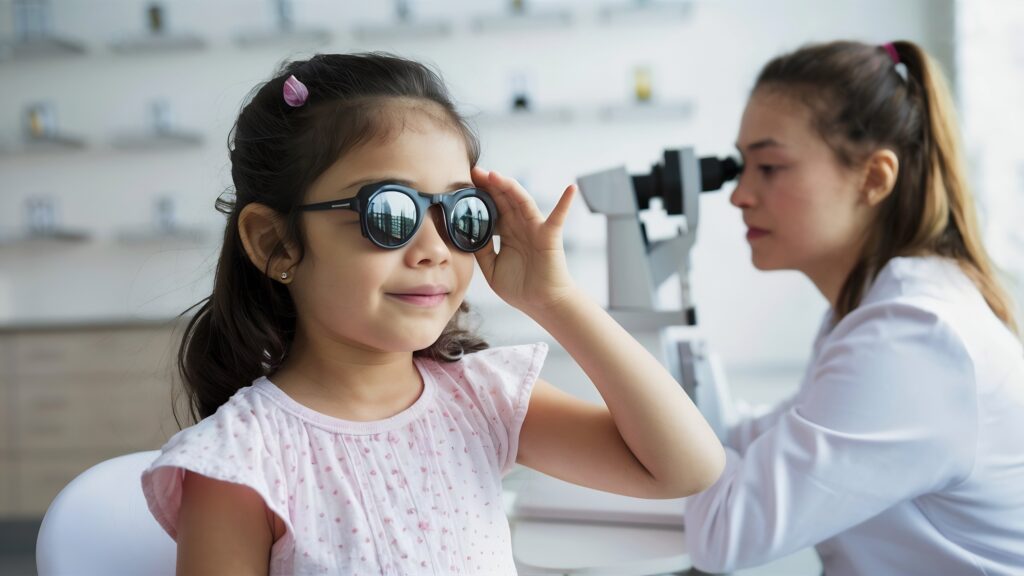
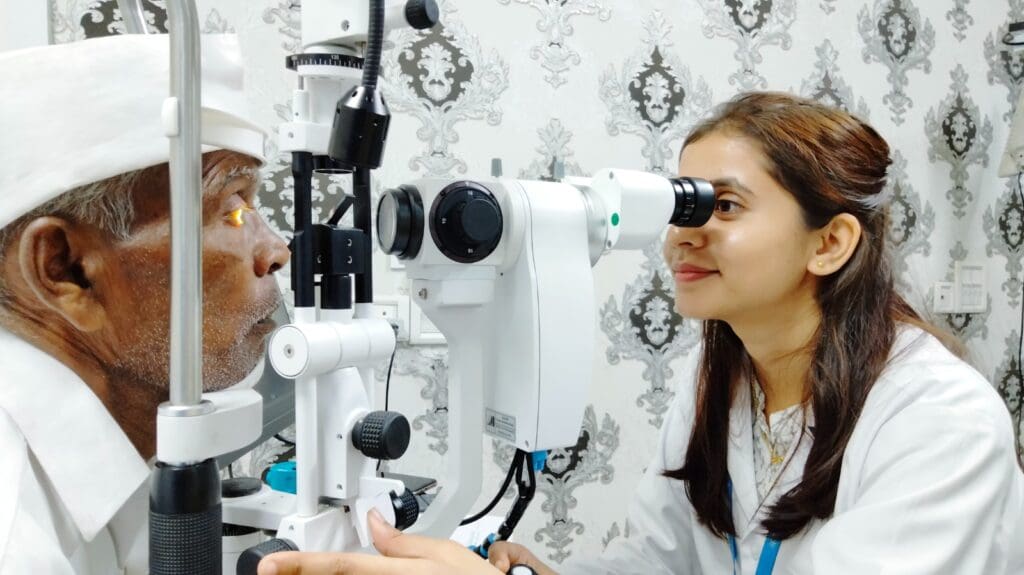
1. Pediatric Contact Lenses
Why Pediatric Contact Lenses?
- Children and teenagers often struggle with glasses due to their active lifestyles.
- Pediatric contact lenses offer an alternative for vision correction.
- They can correct refractive errors (myopia, hypermetropia, astigmatism) in young patients.
Benefits of Pediatric Contact Lenses
- Visual Freedom: Kids can participate in sports, dance, and other activities without worrying about glasses falling off.
- Self-Esteem: Contact lenses boost confidence, especially during adolescence.
- Better Peripheral Vision: Lenses provide a wider field of view than glasses.
- Myopia Control: Some specialized lenses slow down myopia progression.
Types of Pediatric Contact Lenses
- Soft Contact Lenses: Comfortable and easy to handle.
- Orthokeratology (Ortho-K) Lenses: Corrects myopia while sleeping.
- Scleral Lenses: Ideal for irregular corneas (e.g., keratoconus).
- Multifocal Lenses: For children with both myopia and presbyopia.
2. Ortho-K Lenses (Corneal Reshaping Lenses)
How Ortho-K Lenses Work
- These rigid gas-permeable lenses reshape the cornea overnight.
- Patients wear them while sleeping and remove them during the day.
- The cornea retains the new shape, providing clear vision without glasses or lenses during waking hours.
Benefits of Ortho-K Lenses
- Myopia Control: Studies suggest that Ortho-K lenses slow down myopia progression in children.
- No Daytime Wear: Freedom from daytime lenses or glasses.
- Reversible: If discontinued, the cornea returns to its original shape.
3. Bandage Contact Lenses
When Are Bandage Lenses Used?
- After corneal injury, surgery, or conditions like corneal erosions.
- They protect the cornea and promote healing.
Benefits of Bandage Contact Lenses
- Corneal Protection: Shields the cornea from further damage.
- Pain Relief: Provides comfort during the healing process.
- Promotes Epithelial Healing: Allows the corneal epithelium to regenerate.
4. X-Chrome Lenses
What Are X-Chrome Lenses?
- Specialty lenses designed for individuals with color vision deficiencies (color blindness).
- They enhance color perception by filtering specific wavelengths.
Benefits of X-Chrome Lenses
- Improved Color Discrimination: Users can differentiate colors they couldn’t before.
- Enhanced Safety: Better recognition of traffic lights, warning signs, and other color-coded cues.
Conditions for which we prescribe Specialty Contact Lenses
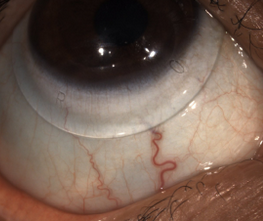
Keratoconus and Keratoglobus:
• Specialty Soft Lenses: These lenses have a thicker center to manage corneal irregularities and are suitable for mild cases of Keratoconus.
• Rigid Gas Permeable (RGP) Lenses: RGP lenses provide a stable surface over the irregular cornea, offering excellent vision correction for Keratoconus patients.
• Scleral Lenses: For more severe cases, scleral lenses are beneficial as they vault over the cornea, providing a stable fit and improved comfort.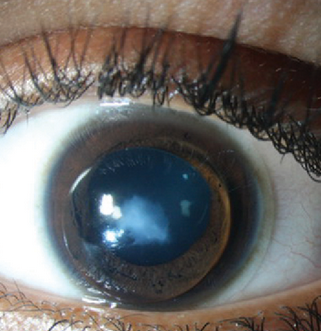
Corneal Opacity:
Specialty contact lenses can improve visual acuity by masking the irregularities and providing a smooth refractive surface, which is particularly useful in cases of corneal opacity.

Sports:
In sports, especially contact sports, soft lenses can be used for mild keratoconus, providing good comfort and vision. Scleral lenses can help athletes with keratoconus to continue to perform at their best with amazing vision.
Our Contact Lens Specialist
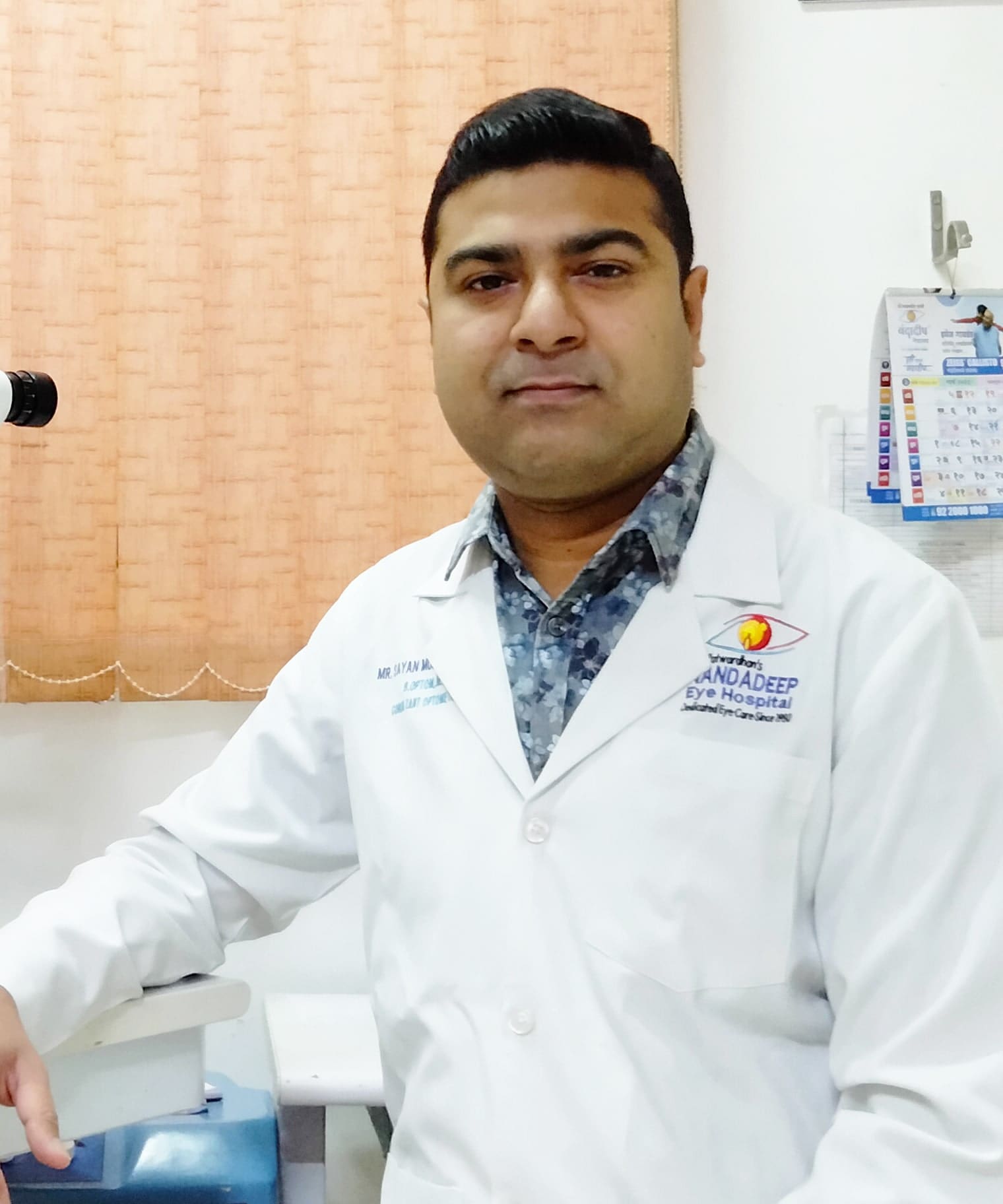
Optom Sayan Mukherjee
Vision Therapy, Speciality Contact lens B.Optom. (WBU) , M. Optom. (NIMS, Rajasthan)
Why Choose Nandadeep Hospital ?Find Out The Latest Treatment Options Used For Contact Lens
Explore our informative videos showcasing the latest advancements in Contact Lens options. From minimally invasive techniques to cutting-edge procedures, we provide in-depth insights into the innovative surgical approaches available for effectively managing contact lens and preserving your vision.


